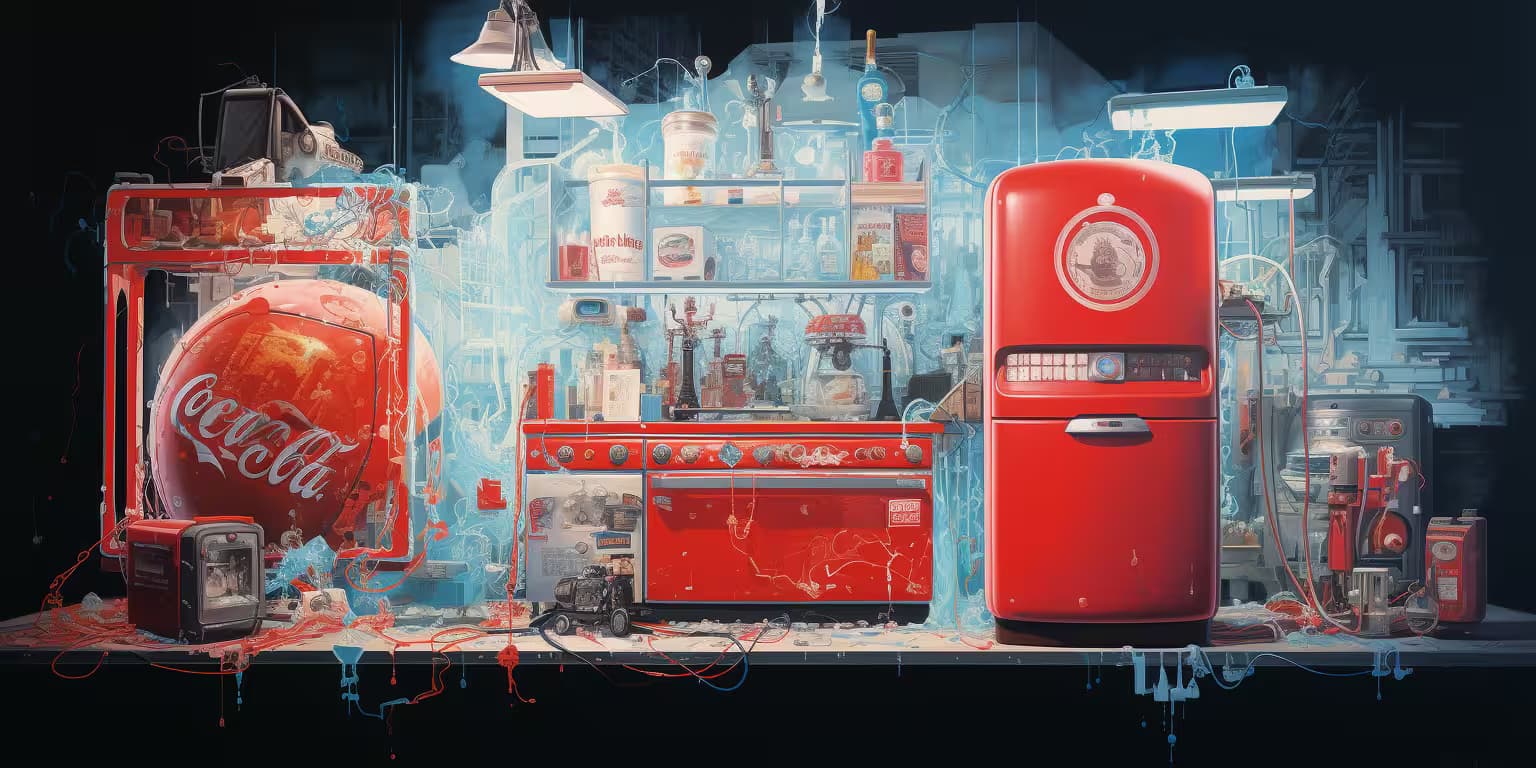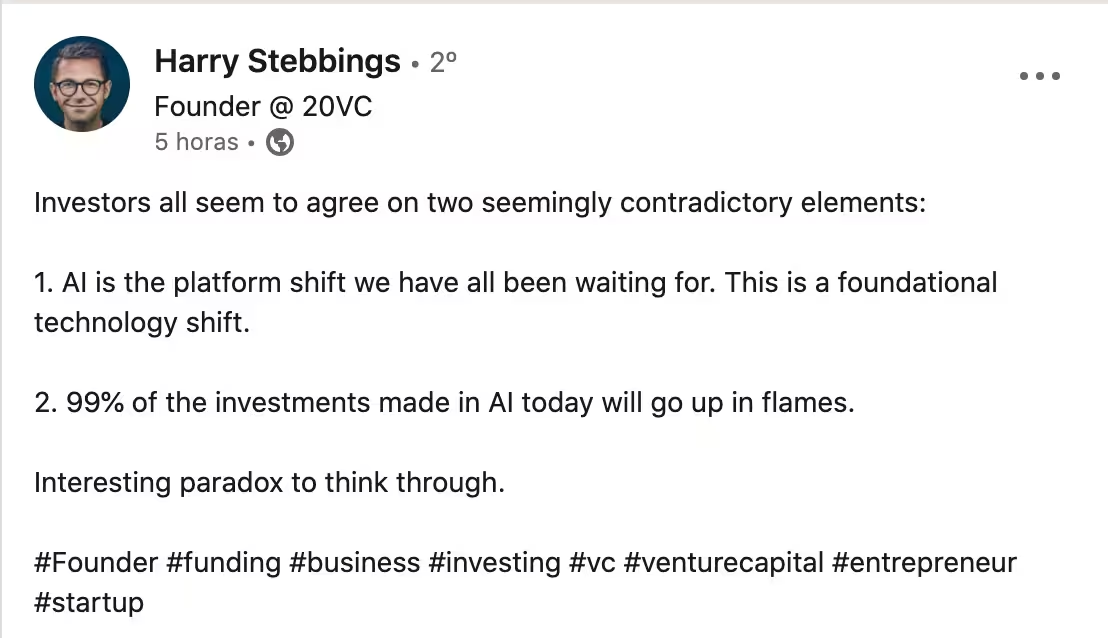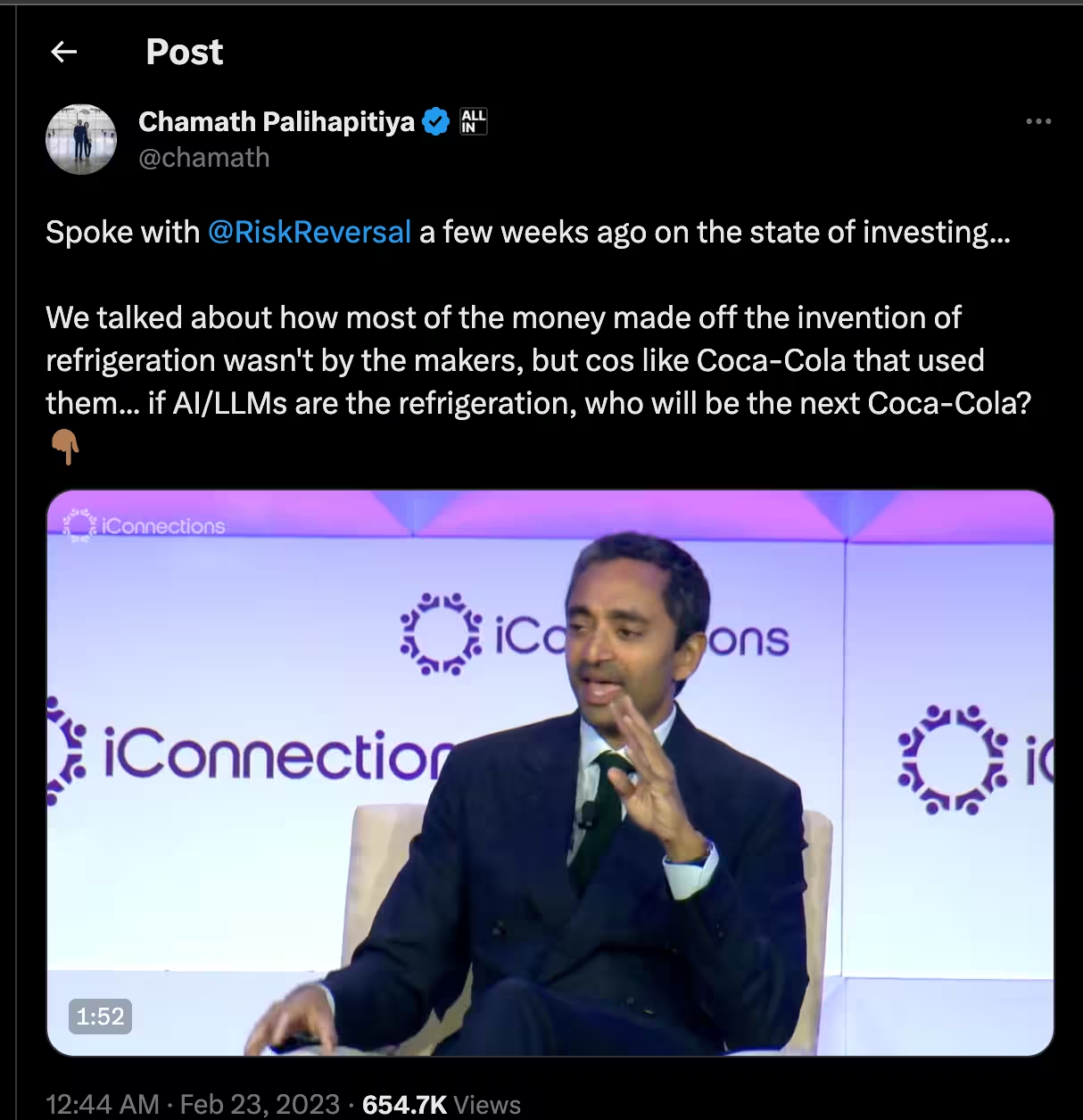Why will 99% of AI startups fail despite AI being the next tech shift?




Foundational technologies, like electricity in the past or AI today, often require decades to solidify their place as essential infrastructure. Only then do new, unexpected applications and industries emerge around them, targeting the support domains of the technology.
Domain Driven Design Theory: Support Domains vs Core Domains
In the world of software, Domain-Driven Design distinguishes between Core and Support Domains. Core Domains are those crucial areas that, when improved, can significantly amplify a company's main offerings. Support Domains, in contrast, are essential but ancillary functions that don't directly boost the bottom line.
For restaurants, core domains are: Food, Service and Ambiance. Restaurant owners will invest significant money in improving them, because in doing so, they can charge more. However, consider how a restaurant manages inventory, processes payments or takes orders. No customer would pay more for their meal because of the technology the restaurant is using in the backend. Its none of their business! These are support domains.
This matters because it has a profound impact on what companies prefer to hire for different use domains:
-
for Core Domains: companies will adopt the technology in-house and use it to evolve their core domain expertise.
-
for Support/Generic Domains: companies will hire products that are easy to use and saves them time and money.
This implies that with AI, companies will first adopt AI to be used in-house and use it to keep improving their core domains. Once AI becomes foundational technology (>99% of all decision making is done by AI, not humans), then we will have new support/generic domains where powerful products and brands will be built.
The problem is that no-one knows yet what those support/generic domains will be:
Example: 1 - Electricity → Refrigeration → Coca Cola
A famous example is the one given by Chamath Palihapitiya.

Step 1: Electricity becomes the Foundation Technology
It took electricity 30 years to become available to the public after the technology was already there. Intense work in policy and infrastructure was needed to be able to distribute it to the wider public. Thomas Edison had intense participation in this time and his company eventually became what is known today as General Electric, 33rd today in revenue in the world. The first to secure distribution effectively often dominates the market, leading to an almost monopolistic hold, desired by many for the stability and standards it offers.
Step 2: Direct Applications Emerge - Refrigeration
With electricity becoming more commonplace, new applications sprouted. Among the first was refrigeration. Though methods to preserve food by boiling ammonia existed, the real shift came with General Electric introducing the first gas-based commercial refrigerator in 1922. Electric companies, seeing an avenue for increased profits, pushed GE towards inventing the first electric refrigerator. The true turning point for widespread refrigeration came in the 1950s when Frigidaire introduced Freon and CFC, slashing costs by half.
Step 3: Brands and Products emerge - Coca Cola
In fact, Coca Cola's inception predates the establishment of General Electric. By the 1930s, it was already bottled and widely distributed within the United States. Its global expansion was largely influenced by the company CEO's commitment to supply Coca Cola to every overseas military post after World War II. This strategy, combined with declining refrigeration costs and global distribution partnerships, paved the way for Coca Cola's extensive global reach.
It's fascinating to consider: even if you were at the forefront of innovations like refrigeration and electricity (like GE), predicting the unique blend of geopolitical events leading to Coca Cola's rise would be challenging. Furthermore, for a company like GE, diving into the soft drink market, even one as lucrative as Coca Cola (which boasts a market cap twice that of GE), would be a stark deviation from their core expertise.
Other Examples:
Numerous other examples echo this trajectory. PCs brought computing power to every household, paving the way for the introduction of the internet and subsequently the web, acting as the foundational infrastructure. This evolution spurred the extensive uptake of broadband, which eventually facilitated the rise of platforms like YouTube and Google. Envisioning a supporting domain like freely distributed children's content becoming a major industry segment while in the era of pioneering PCs would have seemed nearly fantastical, if not outright science fiction, in the 1980s.
Today: AI → ? → ????
Step 1: AI has been born, but has not become foundational yet
For AI to truly become a foundational technology, it would necessitate that over 99% of decisions in our societal frameworks — including businesses, education, and political systems — be made by AI. I'm inclined to believe this scenario for several reasons:
- AI's cost in reasoning is cheaper than that of humans by 7000X.
- Solutions like ChatGPT-4 demonstrate reasoning capabilities that outperform over 95% of humans.
The longevity of certain enterprises will be ensured by their foundational or infrastructural role in this AI evolution. Companies like Nvidia, HuggingFace, OpenAI, Google, and Amazon are poised to shape the AI infrastructure landscape for many decades.
Conversely, this paradigm also explains the potential downfall of many AI startups. As AI has not yet solidified its position as the primary foundation, many startups are focusing on rudimentary applications that are easily duplicable, especially given that development costs have plummeted by a factor of 100 in the past decade, aided by advancements in AI, web technologies, and cloud computing.
Step 2: Once AI becomes foundational, what applications might emerge?
Consequently, it's not far-fetched to believe that our reliance on "thinking" will significantly increase, only that it will be artifical. Rather than resorting to a human customer support representative only when issues arise, we could have an AI customer support agent accompanying the customer throughout their journey, overseeing each step. This AI could even anticipate potential issues before they occur. Imagine monitoring every sensor in real-time. What new business opportunities might arise when we can harness the power of reasoning at virtually no additional cost and on an unparalleled scale?
It won't be about replacing humans, it will be about putting armies of AIs to work for us on micro-tasks that will deliver results and experiences we can't even fathom today.
Step 3: Support/Generic Domains in an AI dominated world
In a future dominated by AI-driven decision-making, what support or generic domains might exist?
Predicting this today is impossible. However, if I were to guess, I'd argue that the interface through which AI systems interact with each other will become a critical support domain in this new paradigm. If AI is responsible for 99% of decisions, it's likely they'll need mechanisms for cooperation with other AI entities that are unfamiliar and not trusted. Much like humans have developed a collaborative scaffolding that make civilizaiton possible (like currency, countries, language and technology) to collaborate at massive scale and speed, AIs will also require an infrastructure where they can:
- Discover other AIs
- Communicate
- Transact
- Delegate Work
The moment we empower AI systems to seamlessly cooperate with each other will mark a significant leap in the magnitude of AI's influence on our world. I predict that whoever builds solutions for this will be the Coca Cola's of the AI world. But honestly, who knows?
Conclusion
As we can see, the paradox that Harry talks about makes all the sense in the world. AI promises to be the most significant paradigm shift we've ever encountered, but its full realization is still on the horizon and might take several decades. 99% of the investments done today will go in flames because:
- They are not foundational/infrastructure companies pushing AI as a foundational technology. They are merely users of the technology.
- As users of the technology and development costs dropping 100X (thanks to the Cloud, ChatGPT and others), the amount of competitors will grow exponentially, thus destroying any hope of building an enduring monopoly and brand.
- Its unknown what will be the new and more permanent support domains in the new paradigm, its too early.
What AI companies do make sense today for you to invest in? Our hypothesis at Patagon.AI is: B2B focused AI startups with great go to market capabilities. At Patagon.AI we are actively looking for talent and startups that are looking to work in this space. If you want to know more, talk to us!